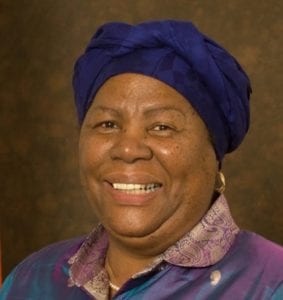The Department of Science and Technology will invest heavily in research and infrastructure of the medium term, according to Minister Naledi Pandor.
Briefing journalists at the Imbizo Centre in Parliament ahead of the department’s Budget Vote, the Minister said some focus would also be placed in funding post-graduate students to take on research studies in a bid to boost the country’s competitiveness internationally. “On the human capital development front, more than 700 students and postdoctoral fellows have been supported through the Square Kilometre Array SA Bursary and Scholarship Programme and the National Astrophysics and Space Physics Programme. “To improve South Africa’s competitiveness, the Department of Science and Technology will make transfer payments to the National Research Foundation to fund 14 880 postgraduate research students in 2015/ 16,” she said on Thursday. The Minister said this was part and parcel of the ambitious targets that the National Development Plan had set. She said key priority areas that the department would focus on includes the development of human capital, creating new knowledge, investing in research infrastructure and encouraging innovation by funding marketable products emerging from research and incubation.Contributing to sourcing alternative energy sources
As power utility Eskom continues to tackle its energy challenges, the Minister said the department was also contributing to the provision of alternative energy through several flagship programmes.On the supply side, the Minister said innovators were manufacturing photovoltaic solar panels aimed at providing solar energy off the Eskom grid.
Last week, Tourism Minister Derek Hanekom announced that Robben Island, one of the world’s top tourist attraction spots, would be a pilot site for the roll-out of photovoltaic panels (PV). On the demand side, Minister Pandor said innovators had come up with a new scheme aimed at assisting communities use their power effectively. “Our investment in indigenous knowledge-based innovation will see the establishment of three community-based enterprises this year. “A total of R80 million has been allocated towards the development of hydrogen fuel cell generator prototypes that will be deployed in selected off-grid applications to provide primary and uninterrupted power. “Areas where hydrogen fuel cells have been deployed include the University of Western Cape Nature Reserve, here in the Western Cape, Windsor East Clinic in Randburg and three schools in the Cofimvaba district in the Eastern Cape,” she said.







